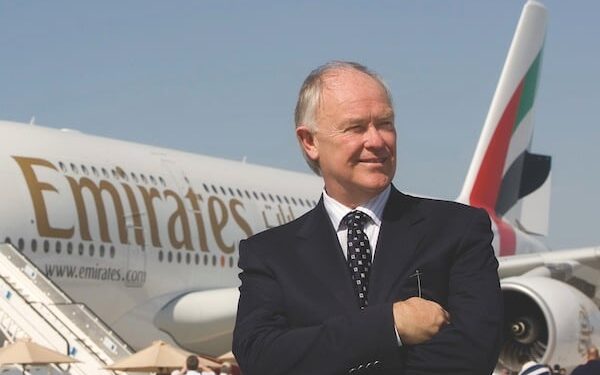At the annual meeting of the International Air Transport Association (IATA), Emirates President Tim Clark delivered a sharp rebuke to leading aircraft manufacturers Boeing and Airbus, holding them accountable for ongoing supply chain disruptions that have delayed new plane deliveries by months and, in some cases, years.
Speaking at a news briefing on the sidelines of the summit, Clark expressed frustration over the aerospace industry’s chronic issues, which have hampered airlines’ efforts to modernize fleets with more fuel-efficient aircraft and expand services to meet rising global demand.
I am pretty tired of seeing the hand-wringing about the supply chain: you [manufacturers] are the supply chain, Clark said, urging Boeing and Airbus to take responsibility for late suppliers and address production bottlenecks.
His comments highlight the mounting pressure on planemakers as airlines like Emirates, one of the world’s largest international carriers, grapple with delayed deliveries that disrupt long-term growth strategies.
Boeing’s Struggles and Signs of Recovery
Boeing, in particular, has faced significant challenges in recent years, including a quality crisis and a labor strike in 2024 that halted production of most of its aircraft.
The U.S. planemaker is also awaiting certification from the Federal Aviation Administration (FAA) for its 777X wide-body jet, a critical aircraft for Emirates, which has 205 of the planes on order. Originally slated for delivery in 2020, the 777X program is now six years behind schedule, with Emirates expecting its first deliveries between mid-2026 and early 2027.
Despite these setbacks, Clark struck a cautiously optimistic tone about Boeing’s recovery. “I’m seeing a greater degree of determination from Boeing to resolve its many issues,” he said, citing recent high-level meetings with the manufacturer.
Boeing’s efforts to stabilize and ramp up production, coupled with its focus on securing FAA certification for the 777X, have instilled a sense of progress, though Clark emphasized that Emirates remains vigilant about timelines.
Airbus Faces Prolonged Delays
Airbus, the European planemaker, is also grappling with supply chain woes, with sources indicating last week that the company has warned airlines of delivery delays extending another three years.
These delays are tied to a backlog of supply chain issues, further complicating airlines’ fleet renewal plans. For Emirates, which operates a mixed fleet of Boeing and Airbus aircraft, these disruptions pose significant operational and financial challenges as the airline seeks to maintain its competitive edge in the global market.
Tariff Concerns and Engine Supplier Dynamics
Clark also addressed the potential impact of U.S. President Donald Trump’s recent tariff policies, noting that Emirates has not yet observed shifts in demand patterns as a result of the trade measures.
He expressed confidence that GE Aerospace, a key engine supplier for Emirates’ Boeing aircraft, would absorb much of the tariff-related costs into its margins, mitigating the impact on the airline.
However, Clark was less conciliatory when discussing Rolls-Royce, Emirates’ other engine supplier. The British manufacturer has faced criticism from Clark in the past for maintenance issues with certain engine models, particularly in the harsh desert climates of the Gulf.
Clark acknowledged that opportunities remain for Rolls-Royce in the region but stressed that the company must deliver reliable performance to maintain its partnership with Emirates.
Industry-Wide Implications
The supply chain bottlenecks highlighted by Clark reflect broader challenges facing the aerospace industry, which is struggling to meet surging post-pandemic demand for air travel.
Airlines worldwide are eager to replace aging fleets with newer, more fuel-efficient models to reduce operating costs and meet sustainability goals. However, persistent delays from Boeing and Airbus have forced carriers to extend the life of older aircraft, driving up maintenance costs and complicating expansion plans.
Emirates, known for its expansive network and premium service, is particularly affected by these delays, given its reliance on wide-body aircraft like the Boeing 777X and Airbus A350 to serve long-haul routes.
Clark’s outspoken comments at the IATA summit signal a growing impatience among airline leaders, who are pressing manufacturers to streamline production and deliver on long-overdue commitments.
As the aviation industry navigates these turbulent times, Clark’s remarks highlight the urgent need for planemakers to address systemic supply chain issues.
WHAT YOU SHOULD KNOW
Bottleneck: in business, a bottleneck is a constraint that impacts the output of a process and doesn’t allow it to achieve the determined goals
President of the international airline Emirates, Tim Clark holds Boeing and Airbus directly responsible for chronic supply chain delays, emphasizing that these planemakers must address production bottlenecks to deliver long-overdue aircraft, such as the Boeing 777X, which are critical for airlines like Emirates to modernize fleets and meet rising global demand.












